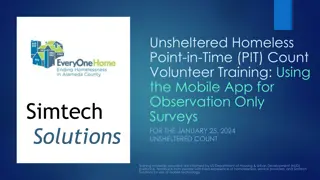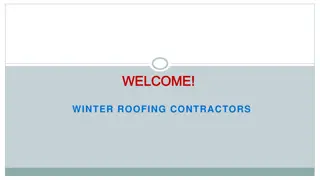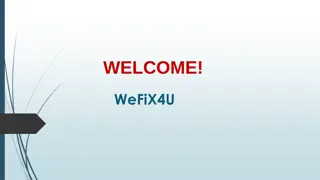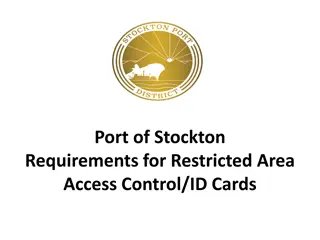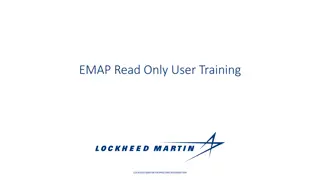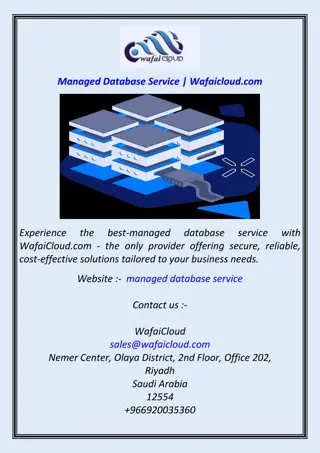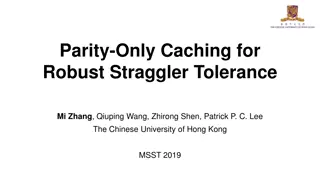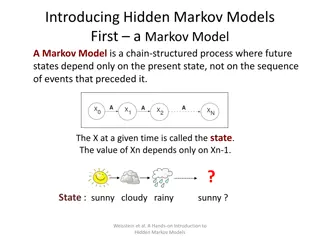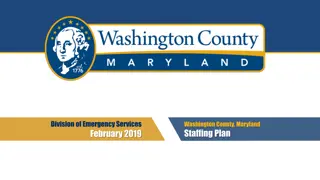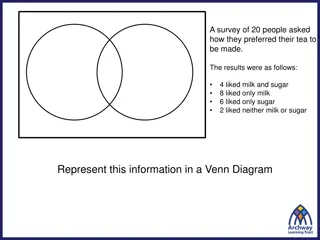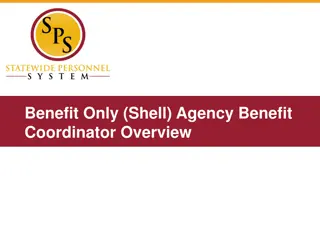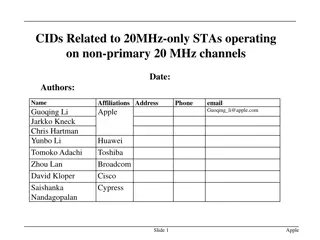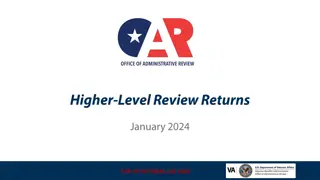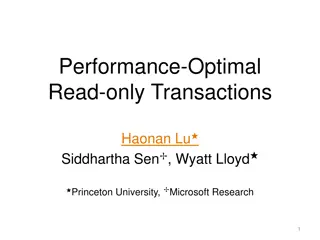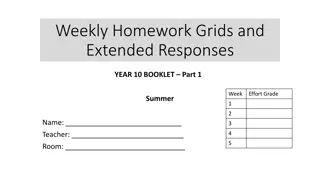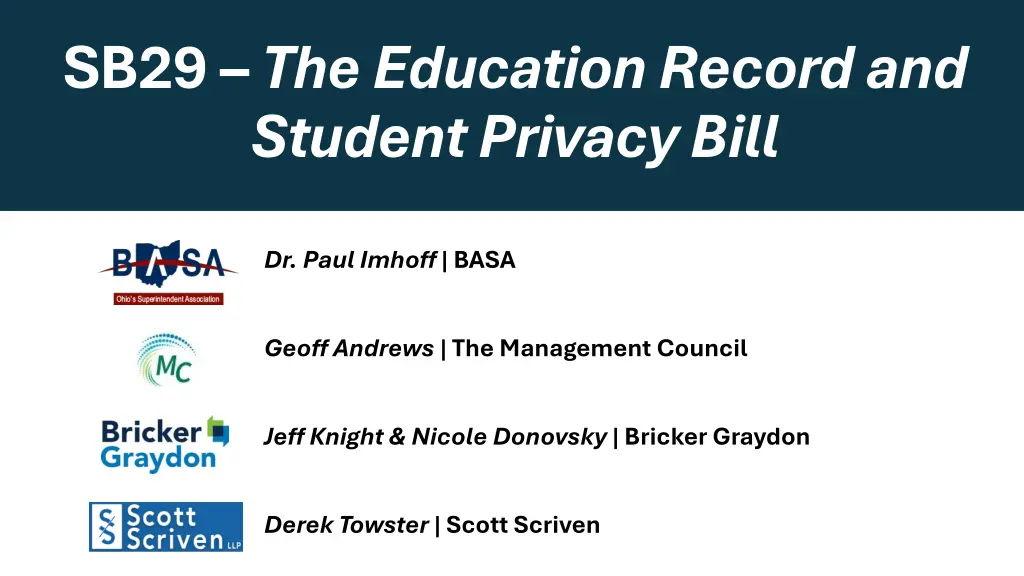
Education Record and Student Privacy Bill Overview
Explore how SB29, the Education Record and Student Privacy Bill, impacts student privacy rights, governing the collection and protection of educational records by technology providers. Learn about key definitions and contractual obligations, ensuring data security and restricted access to educational records.
Download Presentation

Please find below an Image/Link to download the presentation.
The content on the website is provided AS IS for your information and personal use only. It may not be sold, licensed, or shared on other websites without obtaining consent from the author. If you encounter any issues during the download, it is possible that the publisher has removed the file from their server.
You are allowed to download the files provided on this website for personal or commercial use, subject to the condition that they are used lawfully. All files are the property of their respective owners.
The content on the website is provided AS IS for your information and personal use only. It may not be sold, licensed, or shared on other websites without obtaining consent from the author.
E N D
Presentation Transcript
SB29 The Education Record and Student Privacy Bill Dr. Paul Imhoff | BASA Geoff Andrews | The Management Council Jeff Knight & Nicole Donovsky | Bricker Graydon Derek Towster | Scott Scriven
An act that governs the collection, use, and protection of educational records by technology providers. SB29 The Introduced by Sen. Huffman and passed House (96-1) and Senate (30-1) easily. Education Record and Student Privacy Bill Everyone deserves the right to privacy and students are no different..." (Sen. Huffman) Our children need privacy to express themselves, and it should be left to parents, not tech companies, to monitor our children s online presence. (Sen. Huffman) Eff. October 24, 2024
"Educational records" is close to but not synonymous with "education records" under FERPA. "School-issued device" means hardware, software, devices, and accounts that a school district, acting independently or with a technology provider, provides to an individual student for that student's dedicated personal use. Important Definitions "Student" means an individual currently or formerly enrolled in a school district and applicants for enrollment. "Technology provider" means a personwho contracts with a school district to provide a school-issued device for student use and creates, receives, or maintains educational records pursuant or incidental to its contract with the district.
"A technology provider shall comply with Chapter 1347 of the Revised Code with regard to the collection, use, and protection of data as if it were a school district." In contracts (going forward), ensure: o ownership of educational records stays with the school district; o that data breaches are governed by 1347.12; o that destruction/return of educational records is contemplated; o that the Technology provider understands that it may not use educational records for any purpose aside from fulfilling the contract. Specifically ensure that contracts o (1) have appropriate security safeguards for educational records o (2) accessto District educational records is restricted to those Technologyprovider employees who are fulfilling the contract AND o (3) that such employees only use educational records for the purpose of fulfilling the contract Contracting with Technology Providers
Under SB29, school districts and technology providers may NOT electronically access or monitor: 1) Location-tracking features of a school-issued device; 2) Audio or visual receiving, transmitting, or recording feature of a school-issued device; 3) Student interactions with a school-issued device, including, but not limited to, keystrokes and web- browsing activity Restrictions on Access and UNLESS such access or monitoring is: 1) limited to a noncommercial educational purpose for instruction, tech support, or proctoring and notice is provided in advance; 2) permitted under a judicial warrant; 3) necessary because a device is missing or stolen; 4) necessary to prevent or respond to a threat to life or safety; 5) necessary to comply with federal or state law; 6) necessary to participate in federal or state funding programs. Monitoring
The Children's Internet Protection Act (CIPA) was enacted by Congress in 2000 to address concerns about children's access to obscene or harmful content over the Internet. "necessary to comply with federal or state law" Requirements: o Internet safety policy that includes technology protection measures that block or filter Internet access to pictures that are: (a) obscene; (b) child pornography; or (c) harmful to minors (for computers that are accessed by minors). o monitoring the online activities of minors; o education for minors about appropriate online behavior, including interacting with other individuals on social networking websites and in chat rooms, and cyberbullying awareness and response.
Annual (August 1) Notification o any curriculum, testing, or assessment technology provider contract affecting a student's educational records. Identify the technology provider; identify the educational records affected; provide information on how such contracts may be inspected and contact information for concerns/questions. Annual Notice of General Monitoring o If your district elects to generally monitor school-issued devices, then notice of such monitoring must be provided to parents. o For the 2024-25 school year, this notice must occur on or before October 24th. In subsequent years it can go out on August 1stwith the contract annual notice. Notification Requirements 72-Hour Trigger Notifications o If a school district or Technology provider accesses one of the 3 categories of prohibited data on a school-issued device, notice mustbe provided to parents within 72-hours. o Notice must include a written description of the triggering circumstance, which features of the device were accessed, and a description of the threat (if any). o Notice may be temporarily withheld if the notice itself would pose a threat to life or safety.
(B) For any of the following reasons, the state board of education, except as provided in division (H) of this section and in accordance with Chapter 119. and section 3319.311 of the Revised Code, may refuse to issue a license to an applicant; may limit a license it issues to an applicant; may suspend, revoke, or limit a license that has been issued to any person; or may revoke a license that has been issued to any person and has expired . . . Licensure . . . (5) Using or releasing information that is confidential under state or federal law concerning a student or student's family members for purposes other than student instruction.
Aware of challenges with: o Implementing definitions (educational records, "dedicated personal use" vs. "student use"), o Contractual requirements with Technology providers (Chapter 1347), o Likelihood of over-notification and notification fatigue, o Impact on licensure. Potential Clarity on the Way?


